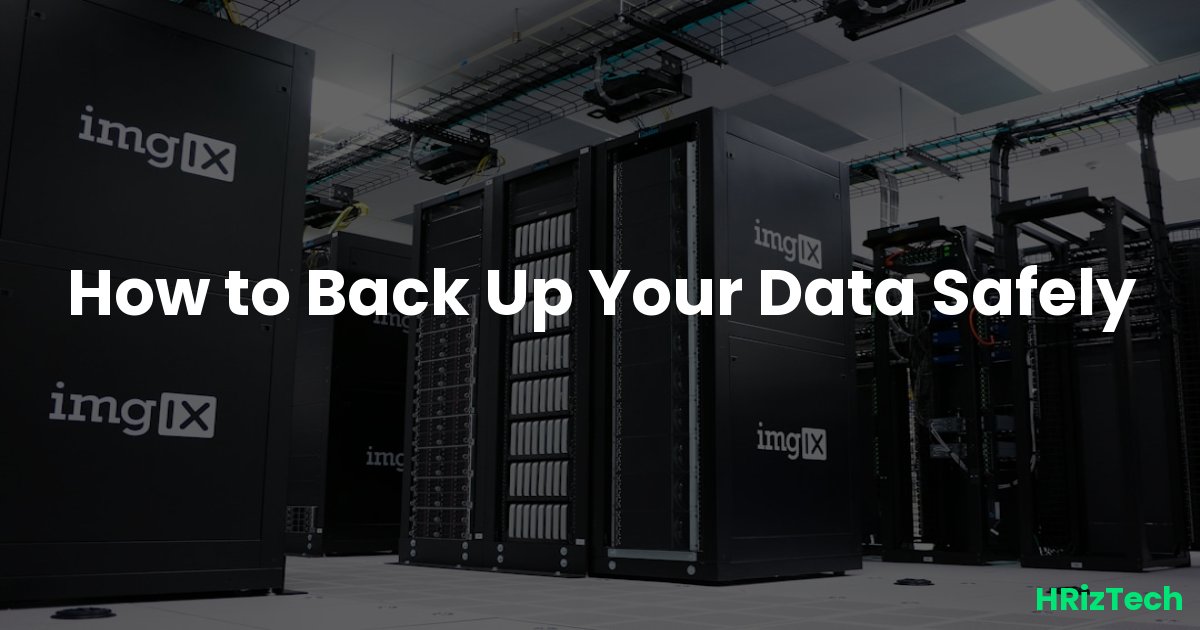How to Back Up Your Data Safely

How to Back Up Your Data Safely
Ever lost important files? It's a heart-stopping experience, isn't it? Learning how to back up your data safely is crucial in today's digital world. This guide will walk you through simple steps to protect your precious information, no matter your tech skills. We'll explore various methods, address common concerns, and prepare you for future tech trends impacting data security.
Why is Data Backup So Important?
Data loss can strike unexpectedly—a hard drive crash, a ransomware attack, even accidental deletion. How to Back Up Your Data Safely isn't just a suggestion; it's a necessity. A robust backup strategy safeguards your photos, documents, projects, and more from irreversible loss. Think of it as insurance for your digital life.
The Rising Threat of Cybersecurity
Cybersecurity threats are on the rise. A 2025 Gartner report predicts a significant increase in sophisticated ransomware attacks. A proper backup is your first line of defense, allowing you to restore your data even if your system is compromised.
What's the Best Way to Back Up My Data?
There's no single "best" method; the ideal approach depends on your needs and budget. However, a multi-layered strategy is usually best. This means using a combination of methods to maximize protection.
Option 1: Cloud Backup Services
Services like Google Drive, Dropbox, and iCloud offer convenient, automated backups. They're accessible from anywhere with an internet connection. However, remember to check their security features and terms of service.
Option 2: External Hard Drives
External hard drives provide a physical backup. They're relatively inexpensive and offer high storage capacity. Remember to store them in a separate location from your computer, to protect against theft or damage.
Option 3: Network Attached Storage (NAS)
A NAS device acts as a central storage hub for your network. It offers more advanced features than external hard drives, like RAID for data redundancy (protecting against hard drive failure).
How Do I Start Building a Robust Backup System?
Building a solid backup system involves several key steps. Let's break them down:
- Choose your backup method(s): Decide which method(s) best suit your needs and budget (cloud, external hard drive, NAS).
- Select your backup software: Many options are available, both free and paid. Research and choose one that's easy to use and reliable.
- Schedule regular backups: Automate your backups to run daily or weekly, ensuring your data is always protected.
- Test your backups: Regularly restore a few files to verify your backups are working correctly. Don't wait for a disaster to find out your backups are corrupted!
- Secure your backups: Password-protect your cloud storage and keep physical backups in a safe place. Consider encryption for added security.
What About Future Tech Trends? How Will They Affect My Backups?
As we move towards 2025, advancements in AI and cybersecurity will significantly influence data backup strategies. AI-powered tools are improving data protection, automating tasks, and enhancing threat detection. However, the increased sophistication of cyberattacks means we need to be even more vigilant.
How Often Should I Back Up My Data?
The frequency of your backups depends on how often your data changes. For everyday users, daily or weekly backups are usually sufficient. However, for businesses or individuals working on critical projects, more frequent backups—even hourly—might be necessary. Remember, consistency is key!
How to Back Up Your Data Safely is not a one-time task; it's an ongoing process. Regular backups and a proactive approach are crucial to protecting your valuable data in the face of ever-evolving threats.
What are your biggest concerns when it comes to data security? Let's discuss in the comments!
Comments
No comments yet. Be the first to comment!